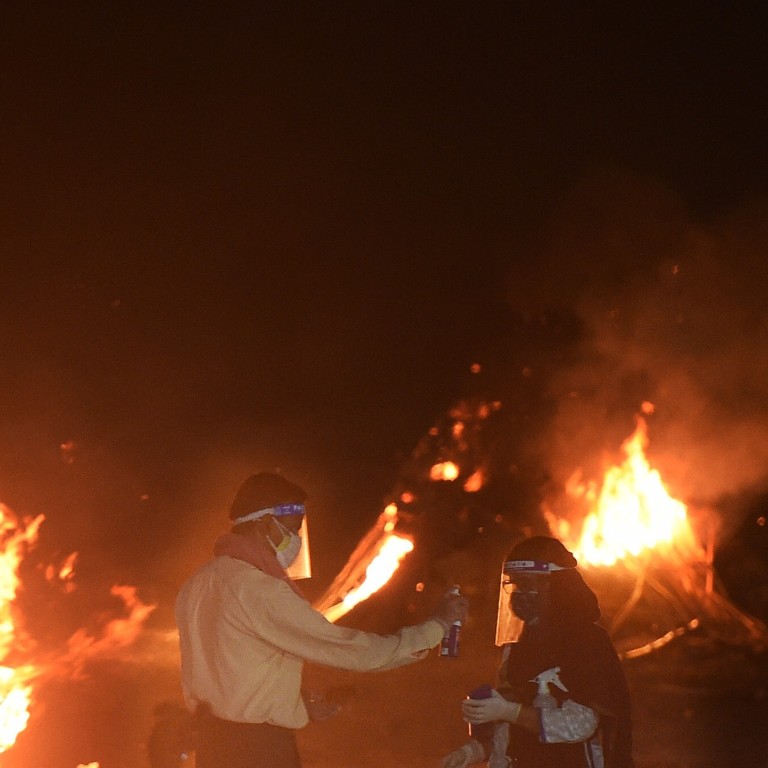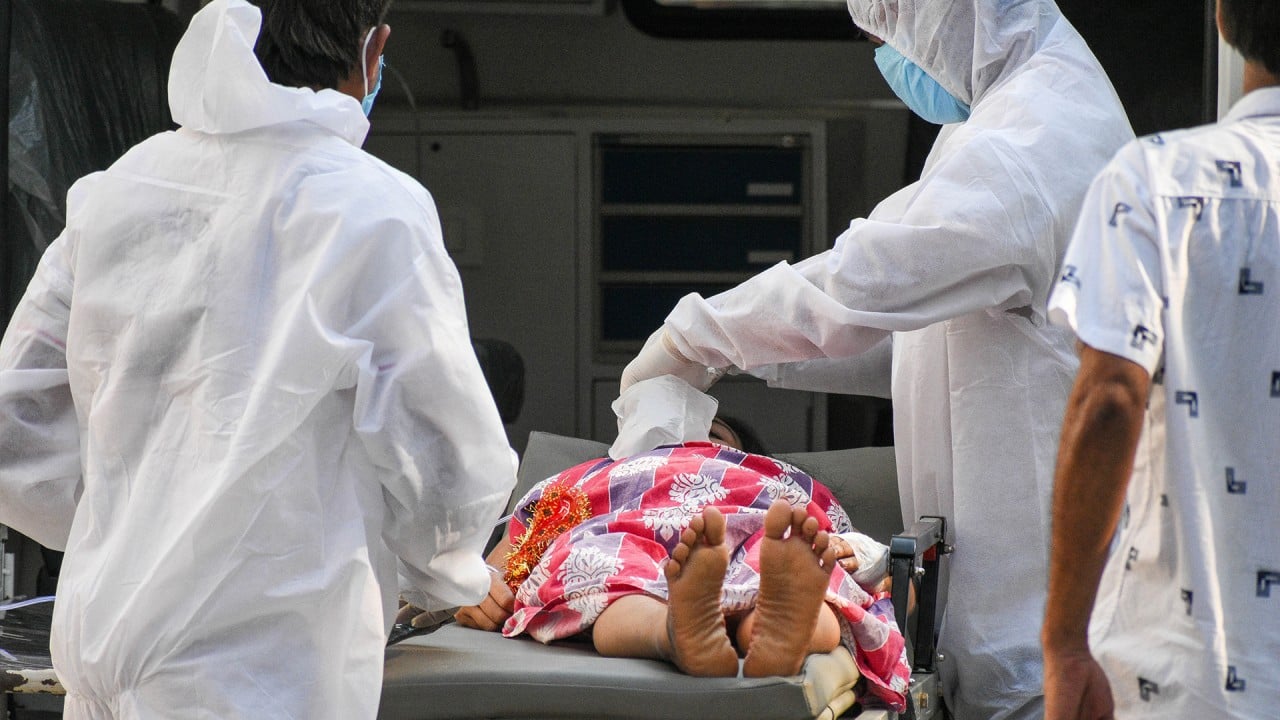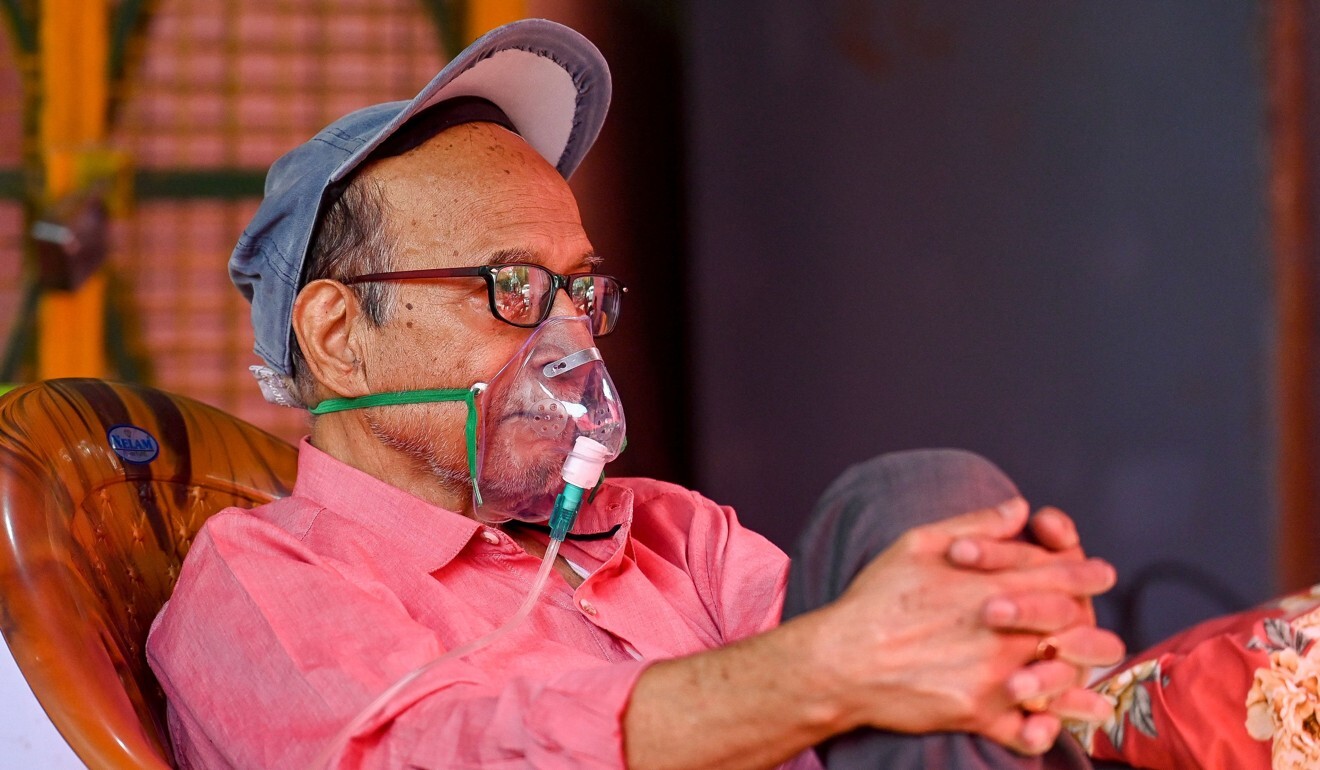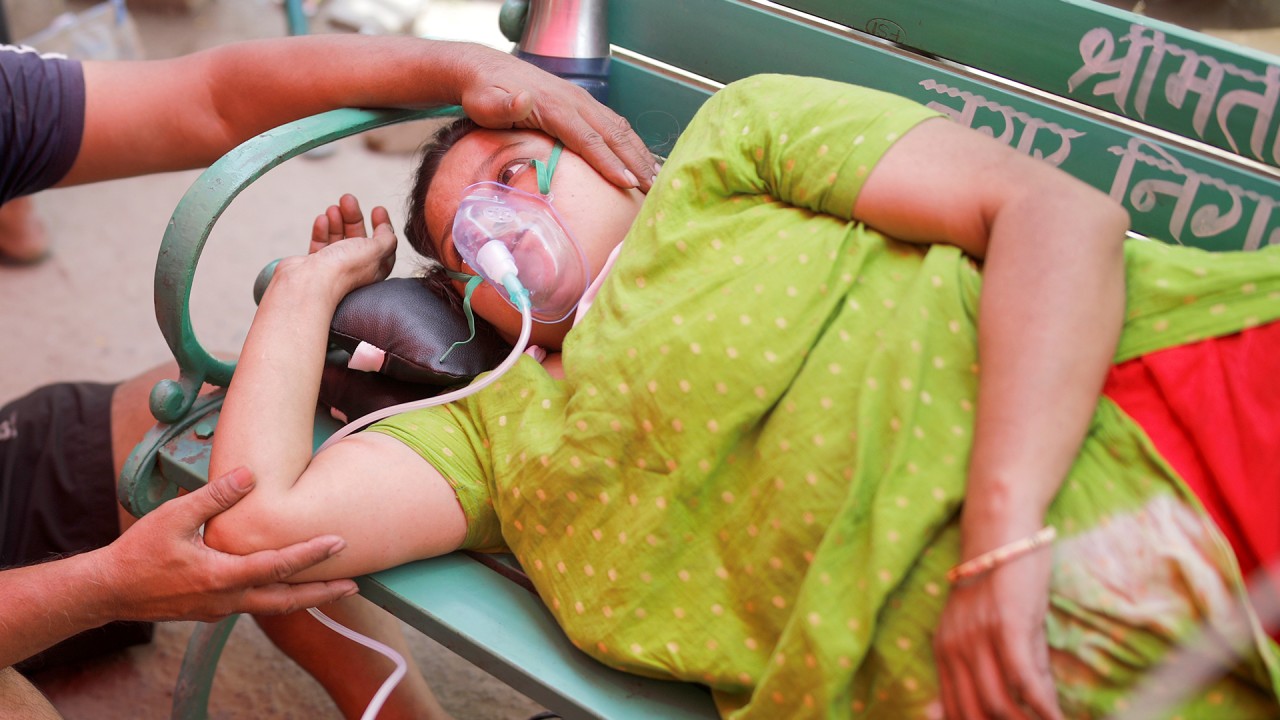
Coronavirus races through rural India, infections and deaths hit another grim record
- The country reported a record 412,262 new Covid-19 cases and 3,980 deaths in the past 24 hours
- In some villages in the northern state of Uttar Pradesh, ‘there are deaths in almost every second house’, a volunteer says
India reported a record 412,262 new Covid-19 cases in the past 24 hours and a record 3,980 deaths. Covid-19 infections have now surged past 21 million, with a total death toll of 230,168, health ministry data showed.
Government modelling had forecast a peak in second wave infections by Wednesday.
“This temporarily halts speculations of a peak,” Rijo M John, a professor at the Indian Institute of Management in the southern state of Kerala, said on Twitter.
‘The trauma won’t go away’: India’s Covid-19 surge is straining mental health
India’s virus crisis has been most acute in the capital, New Delhi, among other cities, but in rural areas – home to nearly 70 per cent of India’s 1.3 billion people – limited public health care is posing more challenges.
“The situation has become dangerous in villages,” said Suresh Kumar, a field coordinator with Manav Sansadhan Evam Mahila Vikas Sansthan, a human rights charity.
In some villages where the charity works in the northern state of Uttar Pradesh – home to about 200 million people – “there are deaths in almost every second house”, he said.
“People are scared and huddled in their homes with fever and cough. The symptoms are all of Covid-19, but with no information available many think it is seasonal flu.”
In the town of Susner in Madhya Pradesh state, patients were being treated outdoors under trees, on blankets on the ground.
India’s Goa state, a hugely popular tourist destination on the western coast, has the highest rate of Covid-19 infections in the country, with up to one in every two people testing positive in recent weeks, government officials said.

08:44
‘A lot of people are going to die’: a frontline doctor’s account of Covid-19 crisis in India
Such a waiver would make vaccines more widely available, although it could take months for the World Trade Organization to hammer out any deal.
Modi has been widely criticised for not acting sooner to suppress the second wave, after religious festivals and political rallies drew tens of thousands of people in recent weeks and became “superspreader” events.
The surge in infections has also coincided with a dramatic drop in vaccinations because of supply and delivery problems.
Several states have imposed various levels of social restrictions to try and stem infections, but the federal government has refused to impose a national lockdown.
India’s southern state of Kerala, which has 376,004 active cases, announced it will impose nine days of curbs on movement from Saturday.
In the capital Delhi, fewer than 20 of more than 5,000 Covid-19 intensive care beds are free at any one time.
As India’s Covid-19 cases surge, volunteers step in where state failed
Student doctors like Rohan Aggarwal, 26, recruited to fight the second wave, are being forced to make life and death decisions.
His Holy Family Hospital in Delhi normally has a capacity for 275 adults, but is currently caring for 385.
“Who to be saved, who not to be saved should be decided by God,” Aggarwal said.
“We are not made for that – we are just humans. But at this point in time, we are being made to do this.”
In the office of a Hindu crematorium in Delhi, the floor and shelves are overflowing with earthen pots, plastic packets and steel containers filled with the ashes of the city’s many Covid-19 victims who have been cremated.

Practising Hindus collect the ashes of the dead a few days after the funeral for immersion in a river or sea, one of the many rituals that they believe lead to salvation of the soul.
“Our lockers are full. We cannot store any more ashes. We used to get around 40 Covid-19 bodies a day. We are now telling relatives to take the ashes with them on the same day.” Pankaj Sharma, a manager at the crematorium said.
While India is the world’s biggest vaccine maker, it is struggling to produce enough product for the surge in infections. Its two current vaccine producers will take two months or more to boost total monthly output from the current 70 million to 80 million doses.
The country’s top scientific adviser has warned of a possible third wave of infections.
“Phase 3 is inevitable, given the high levels of circulating virus,” the government’s principal scientific adviser, K. VijayRaghavan told a news briefing on Wednesday.
“But it is not clear on what timescale this phase 3 will occur … We should prepare for new waves.”
The National Centre for Disease Control (NCDC) said that the UK strain of Covid-19 was more dominant in north India, while the new Indian variant known as B. 1.617 was more prevalent in Maharashtra, Karnataka and Gujarat.
As India’s Covid-19 surge hits embassies, Modi’s image abroad suffers
All three countries are fighting their own pandemic surges, which Red Cross leaders have described as a “human catastrophe”.
The Sri Lankan government banned flight passengers from India entering, as the country reported its highest daily toll of 14 deaths and 1,939 infections in 24 hours.
Sri Lanka’s navy said it had stepped up patrols to keep away Indian trawlers, adding that on Tuesday it stopped 11 such vessels which had crossed the narrow strip of sea dividing the two neighbours.

03:02
India’s oxygen crisis: Covid-19 patients rely on express trains and makeshift camps for air supply
Bangladesh halted all international flights on April 14 because of its own surge and shut its border with India on April 26.
It has reported 11,755 Covid-19 deaths and 767,338 cases.
Bangladesh has had 10 million vaccine doses from India, but the supply has been halted and the government is now negotiating to get Chinese jabs.
Just two return flights a week are allowed to India, to bring back stranded nationals. Most border crossings are also closed and only returning Nepalis can use those still open.
Many hospitals in Nepal are overflowing with Covid-19 patients, according to the International Federation of Red Cross and Red Crescent Societies (IFRC).
“Southern towns near the Indian border are unable to cope with the growing number of people needing medical treatment,” it said. “Nepal is recording 57 times more cases than this time last month.”
Nepal, Bangladesh and Pakistan are all experiencing record Covid-19 death rates, it added.
Additional reporting by Agence France-Presse

